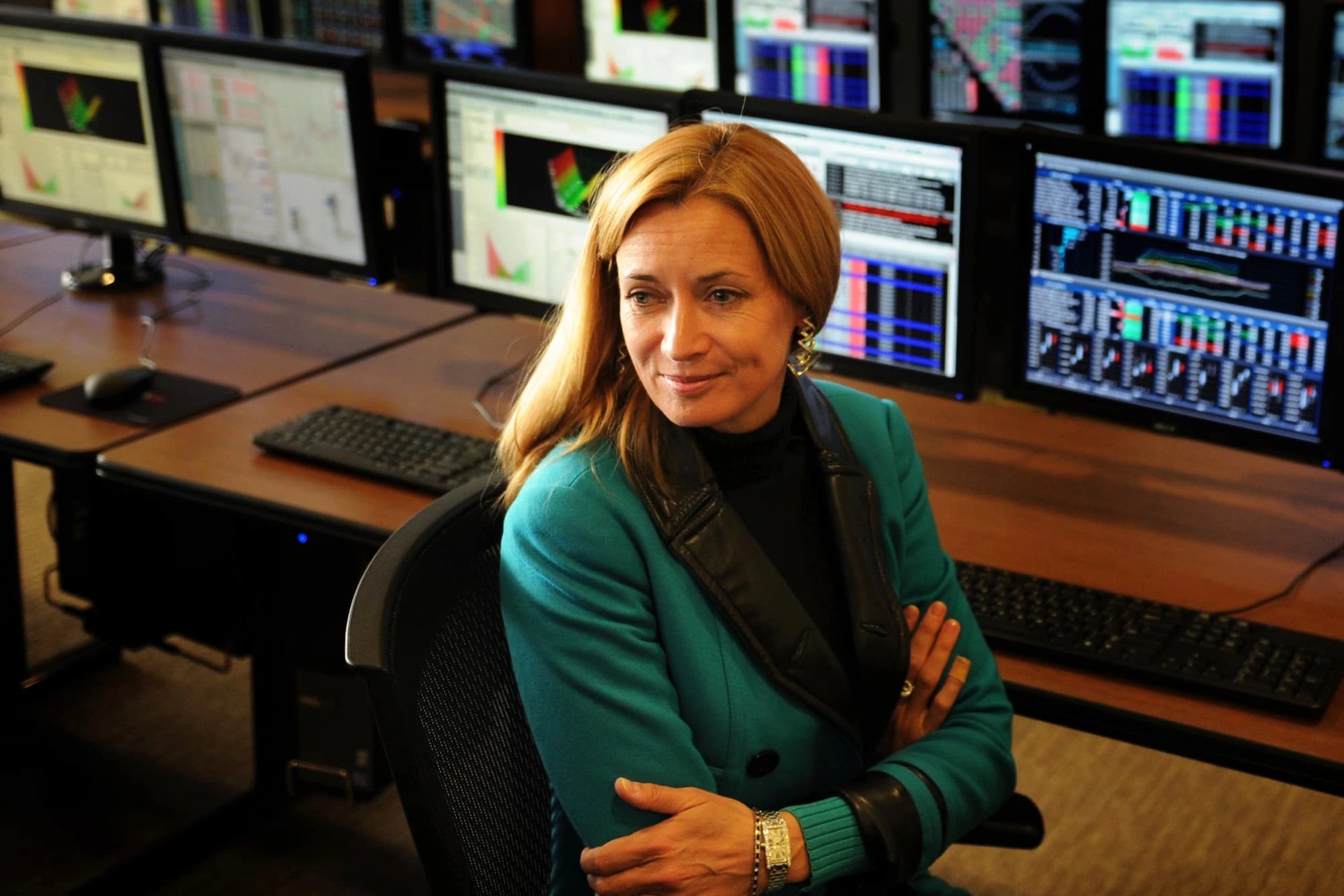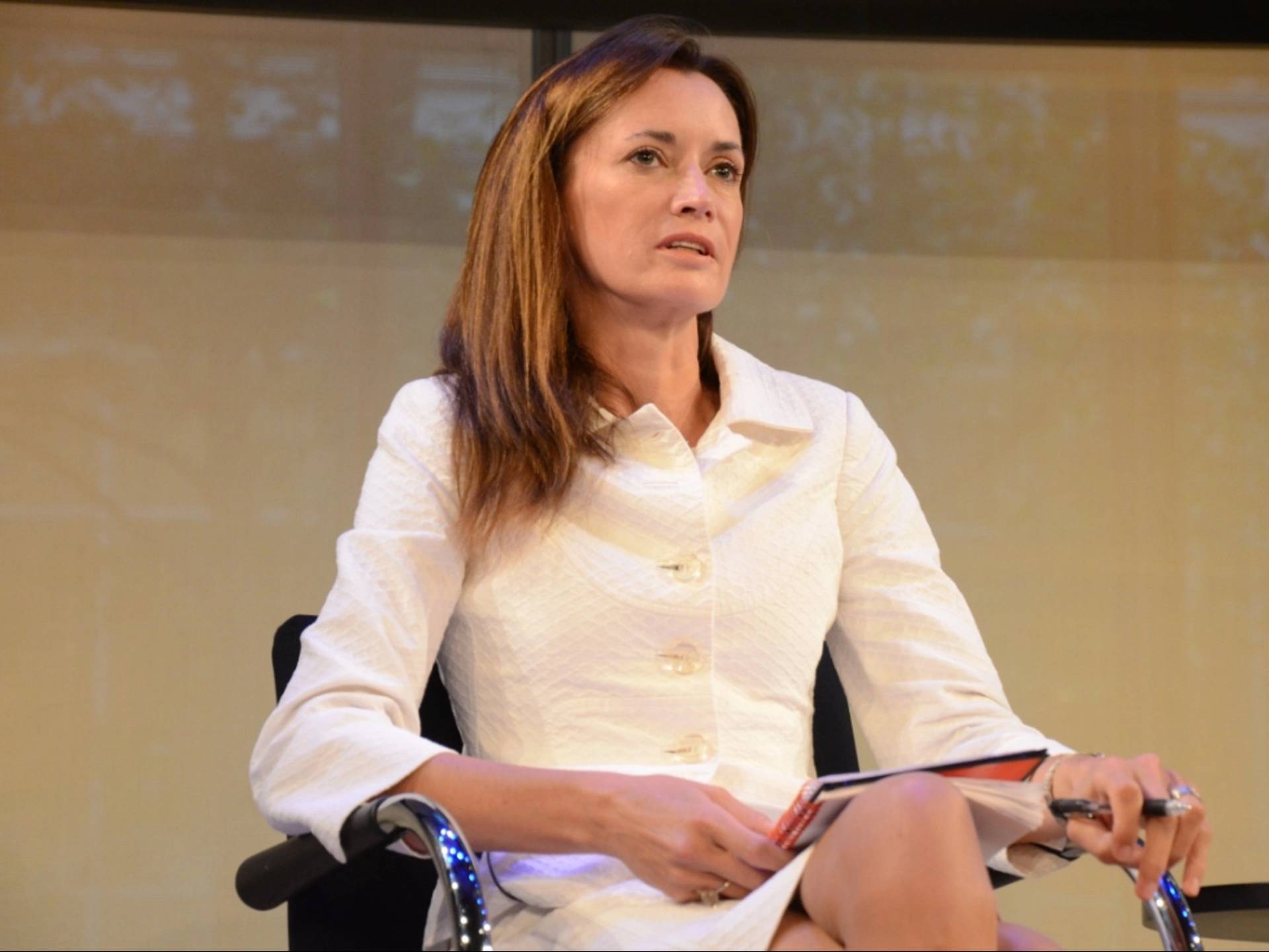Subscribe to wiki
Share wiki
Bookmark
Blythe Masters
The Agent Tokenization Platform (ATP):Build autonomous agents with the Agent Development Kit (ADK)
0%
Blythe Masters
Blythe Masters (born 22 March 1969) is a British former executive at JPMorgan Chase.[1] She is the former CEO of Digital Asset Holdings,[2] a financial technology firm developing distributed ledger technology for wholesale financial services.[3] Masters is widely credited as the creator of the credit default swap as a financial instrument. She is also Chairman of the Governing Board of the Linux Foundation’s open-source Hyperledger Project, a member of the International Advisory Board of Santander Group, and an Advisory Board Member of the US Chamber of Digital Commerce.
Masters is the Co-chair of the Global Fund for Women and a Board member at Credit Suisse, a leading wealth manager, with strong investment banking capabilities.[28]
Blythe Masters is known as the first and most notable Wall Street banker to go into the blockchain, After stepping down as CEO of the technology start-up Digital Asset Holdings.[32]
Biography
Education
Born in Oxford, Masters was raised in the southeast of England. She attended The King's School in Canterbury.[4] She graduated in 1991 from Trinity College, Cambridge with a B.A. in economics.[5]
Professional career
Masters joined the bank JP Morgan Chase in 1991 after completing several internships there while still a student dating back to 1987. Responsible for credit derivative products at J.P. Morgan, Masters became a managing director at 28, the youngest woman to achieve that status in the firm's history.[6] She is widely credited with creating the modern credit default swap, a derivative used to manage credit exposure to underlying reference entities.[7] In 1994, J.P. Morgan had extended a $4.8 billion credit line to Exxon, which faced the threat of $5 billion in punitive damages for the Exxon Valdez oil spill. A team of J.P. Morgan bankers led by Masters then purchased credit protection against the credit line to the European Bank of Reconstruction and Development to cut the capital which J.P. Morgan was required to hold against Exxon's default, thus reducing its own risk. J.P. Morgan later bundled together packages of such exposures and offered them to market as BISTRO, for Broad Index Secured Trust Offering,[8] and these new financial instruments were quickly adopted by other banking institutions.[9]

When derivatives played a role in the 2008 financial crisis, having been applied by other firms to sub-prime mortgages, Gillian Tett's book, Fool's Gold: How the Bold Dreams of a Small Tribe at J.P. Morgan Was Corrupted by Wall Street Greed and Unleashed a Catastrophe, documented how the original intent and features of credit derivatives had been distorted.[10] Nonetheless, Masters was described by the UK newspaper The Guardian as "the woman who invented financial weapons of mass destruction". The paper later apologized for failing to give Masters an adequate opportunity to respond to their characterization.[11] She had told the newspaper: "I do believe CDS [credit default swaps] have been miscast, much as poor workmen tend to blame their tools." Masters explained to The Economist, "Tools that transfer risk can also increase systemic risk if major counterparties fail to manage their exposures properly".[12] In April 2010 she told the Economic and Monetary Affairs Committee of the European Parliament that "there are lessons that have to be learned. I for one feel that I have learned from that experience and there are things I may like to have seen done differently". She stated support for reforms that increase transparency and reduce the risk of contagion among financial firms.[13]
From 2001 to 2004, Masters served as the bank's head of Global Credit Portfolio and Credit Policy and Strategy. From 2004 to 2007, she was Chief Financial Officer of J.P. Morgan's Investment Bank. In 2007 she was named head of Global Commodities.[14] By 2014, J.P. Morgan had the largest revenues of any investment bank in commodities, according to United Kingdom analytics firm Coalition.[15] That same year, J.P. Morgan announced the sale of its physical commodities business for $3.5bn in the face of increased regulatory scrutiny brought on by a Federal Energy Regulatory Commission investigation into the bank’s alleged manipulation of energy markets in California and Michigan.[16] J.P. Morgan paid $410 million to settle the investigation without admitting wrongdoing. J.P. Morgan defended Masters, stating that "We strongly dispute that Blythe Masters or any employee lied or acted inappropriately in this matter". Masters left J.P. Morgan once she had completed the sale for the bank.[17]
Masters was the Chair of the Securities Industry and Financial Markets Association from 2008 to 2010 and also of the Global Financial Markets Association from 2012 to 2014, trade associations whose missions include promoting public trust and confidence in financial markets.[18] She has frequently represented the industry in Washington D.C. on matters including the design of carbon markets to contain global warming, curbs on large commodities trading positions, and the financial regulatory overhaul.[19]
From March 2015 to December 2018, Masters is the CEO of Digital Asset Holdings. Digital Asset is a startup that uses distributed ledger technology to reduce cost, risk, and capital requirements in wholesale financial services.[20][21]
In December 2015, it was posited in the media that the new Barclays CEO Jes Staley had approached Masters about running the bank’s investment banking division, however, Masters indicated she was fully committed to her current role at Digital Asset Holdings.[22] From 2015 to 2016 she was the Chair of the Board of Santander Consumer Holdings Inc. (NYSE: SC), a full-service, technology-driven consumer finance company.[30]
In May 2018, Masters was listed by UK-based company Richtopia at number 4 in the 100 Most Influential Women in Blockchain list.[23]
Masters is a Board Member of GCM Grosvenor, CAIS, Forge Global, Credit Suisse Group, and Chair of Credit Suisse Holdings (USA). She is an Advisory Board member for the US Chamber of Digital Commerce, Sandbox AQ, Figure Technologies, and Maxex. She is a member of the Brookings Institution Taskforce on Financial Stability and P.R.I.M.E. Finance (the Hague-based Panel of Recognized International Market Experts in Finance), and Chair of Wilshire's Digital Assets Advisory Group.[29]
Qualifications
Experienced financial services and technology executive with extensive knowledge in start-ups and blockchain and extensive corporate governance and advisory experience.[31]
Digital Asset
Masters was the CEO of Digital Asset Holdings from March 2015 to December 2018, LLC, a company that builds secure and distributed processing tools to speed up settlement, reduce costs, and enhance security and transparency in regulated industries. The startup has raised more than $100 million in multiple rounds of funding from fifteen of the world's largest technology and financial firms, such as Citibank, Goldman Sachs, JPMorgan, Deutsche Boerse, DTCC, CME, IBM, and Accenture. The company is developing enterprise distributed ledger systems for ASX, DTCC, and others.[24] In December 2017, ASX officially announced it would upgrade its post-trade settlement system to a blockchain platform designed by Digital Asset Holdings.[25]
Personal Life
Masters is Co-Chair of the Board of the Global Fund for Women, a member of the Board of The Breast Cancer Research Foundation, and the former Chair of the Board of the Greater NY Affiliate of the breast cancer charity, Susan G. Komen for the Cure.[26] She is an amateur equestrian.[27]
See something wrong?
The Agent Tokenization Platform (ATP):Build autonomous agents with the Agent Development Kit (ADK)
